We often speak of our world’s vastness — a place of countless cultures, languages, and lived experiences. We emphasize the importance of cross-cultural understanding, of listening and learning from others. But too often, these ideals remain abstract.
Now, imagine a way for young people around the world to connect directly — to share their thoughts, questions, and hopes across borders. What once felt like a distant vision is already a reality for more than 80,000 students, thanks to a collaboration between a pioneering, prize-winning journalist and Make It Better Foundation Partner Project Zero, a research group at Harvard’s Graduate School of Education.
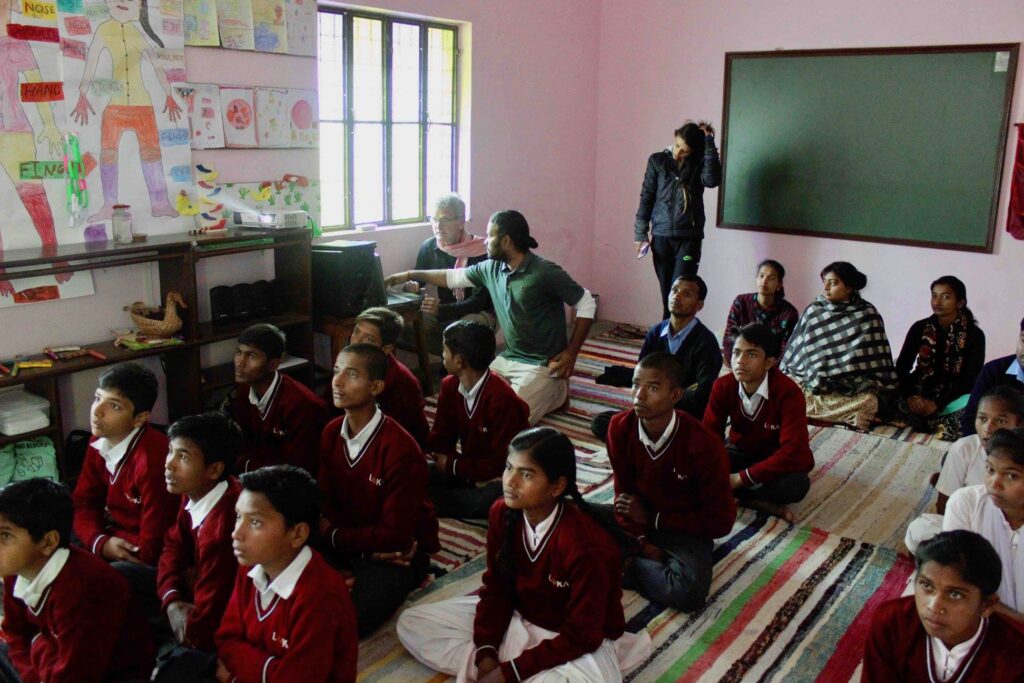
The Journalist
The prize-winning journalist is Paul Salopek. With sponsorship from National Geographic, he embarked on what he thought would be a seven-year walk, beginning with a trek through the Great Rift Valley in Ethiopia, accompanied at first by a local guide and supply-carrying camels.
Paul is following the path presumptively taken by our Stone Age ancestors as they migrated out of Africa 60,000 years ago — trekking from Ethiopia through the Middle East, Asia, and the Americas, aiming to end at the southern tip of South America. Along the way, he is documenting the experiences of the people he meets — farmers, villagers, nomads, ordinary people whose voices we rarely hear. He is practicing what’s been dubbed “slow journalism” — careful observation, interviewing, storytelling, and listening. The name of his venture — Out of Eden Walk — refers to his starting place in the Rift Valley, the location of the oldest hominid fossils.
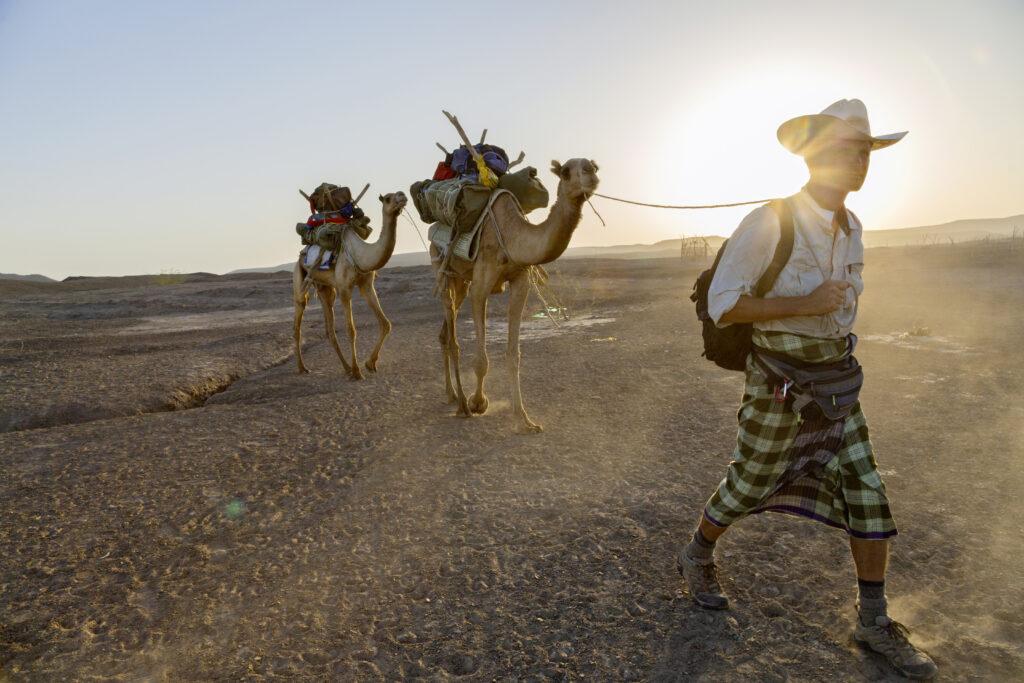
The Research Group
Members of Project Zero, an educational research group housed at Harvard’s Graduate School of Education for nearly 60 years, met Paul while he was planning his journey. The PZ team realized that this experiment could be a rich learning opportunity for students from all over the world — a chance to follow Paul on his walk, mirror some of his activities in their own communities, and share their learning with one another. And so was born “The Open Canopy,” previously called “Out of Eden Learn” — a K-12 asynchronous virtual exchange program. This initiative engages students in various activities related to Paul’s journey, with each activity dubbed a Footstep.
One of the first learning journeys developed is called “The Present and the Local.” Students read some of Salopek’s posts about the details of everyday life in a particular community, such as the experience of rice farmers in Japan during a brutal heat wave. He writes:
Out in the big golden rhomboids of the paddy fields, the rice drooped in the blowtorch heat. Dragonflies sparkled like glitter in the sun above the canals, while back inside the cool and darkened cybercafe, a soft ice cream machine hummed, giving and giving and giving for free. We eventually found a farmer and asked him what he was going to do next year. “I have no idea,” he replied.”
Students are invited to comment on Paul’s posts. And, inspired by his descriptions of faraway places, students are asked to explore their own communities, looking for what they have never noticed before in their everyday worlds. They go for a walk, observe closely, take photos, and post their videos and observations. They map their neighborhoods and write stories about something that happened to them at some place along the map. They interview an adult about memories of the past, or about the meanings of a particular valued household object.
Students also comment on the posts of their walking partners. Using a dialogue toolkit, they go beyond simple “likes” and are prompted to develop useful ways of commenting. The toolkit provides specific prompts, such as “help me understand,” “I wonder if…,” “Another way of looking at it is,” “From my perspective…” All of these are designed to promote richer dialogue, guide students in making connections, and help them show how someone else’s post extended their own thinking.
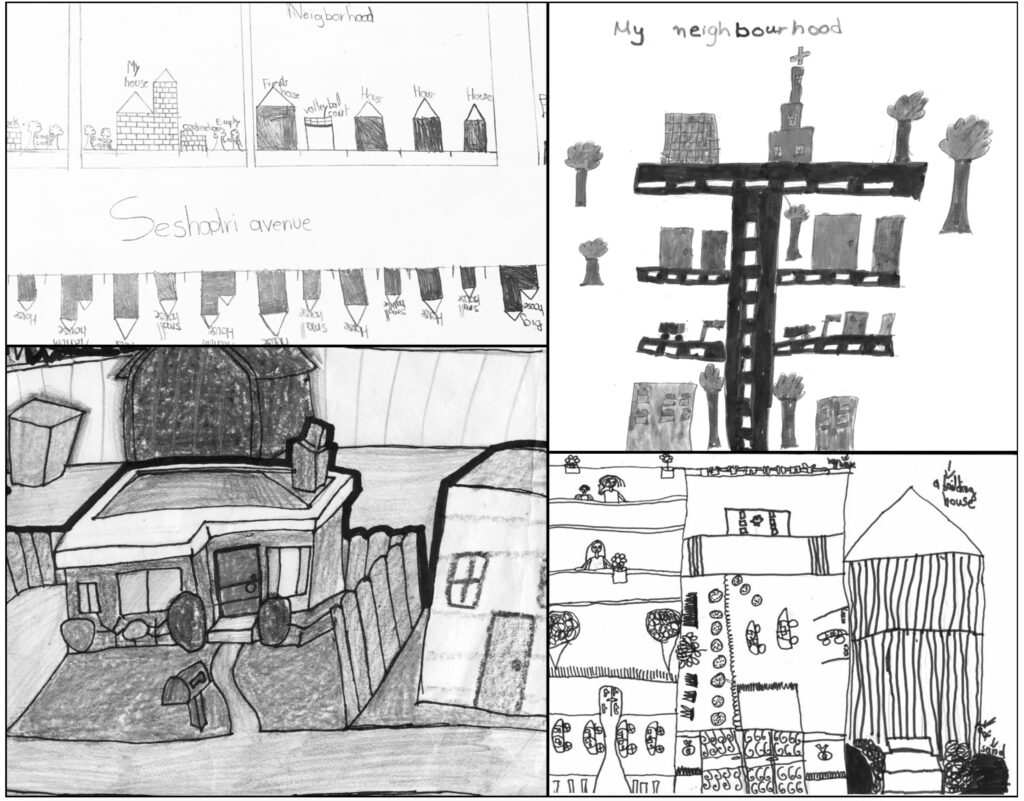
The Three Os
A key pedagogical goal of this program is for students to avoid engaging in the “Three Os”:
- Overgeneralization: Making sweeping statements and stereotyping
- Overconfidence: Inserting one’s own knowledge or perspective without supported facts
- Othering: Overemphasizing how different (and better) one is than others
To counter the tendency to display one or more of the three Os, students are deliberately placed in diverse groups as they participate together in learning journeys. These walking partner groups are created so that participants come from different cultures and socio-economic backgrounds, including both rural and urban environments.

I have interviewed teachers around the world who have enrolled their students in this project. They often relate how this experience has expanded their students’ worlds. They tell me things like this:
- It gets them to slow down and discover the beauty in their everyday lives.
- It gets them to see the real human stories behind migration.
- It gets them thinking about borders, including the invisible borders in their schools, like SES.
- It gets students from families across the political divide thinking deeply about stereotyping, bias, and hate.
Not only are students connecting with other students from around the world, but they also have an authentic audience. They know that their post will be read by someone besides their teacher — it will be read and commented on by another person of approximately the same age, living far away, whose life is different in many ways from their own, but who is eager to connect.
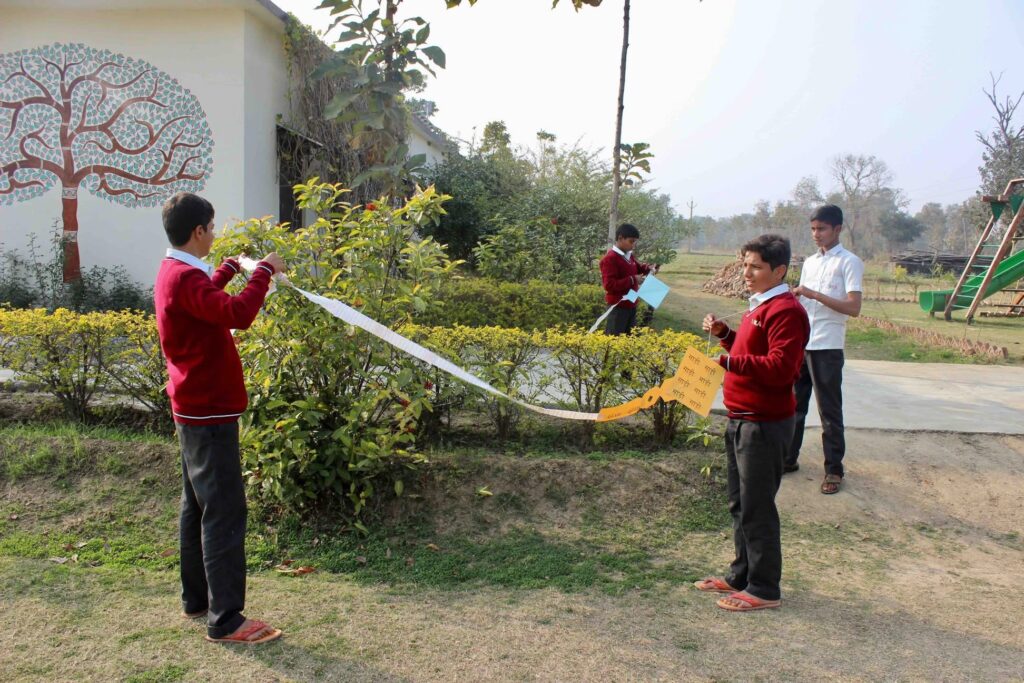
For the past 12 years, thanks to generous funding thus far, this program has been free and open to all, and Project Zero hopes it will remain so. At the time of this writing, Paul is about to arrive in Alaska and ramble south through the Americas to Patagonia, where his journey will eventually end. But long after he puts down his boots, The Open Canopy program aspires to remain freely available to educators and students worldwide. After all, its powerful approach to teaching and learning — an approach that emphasizes slowing down, sharing stories, and making authentic connections across contexts and cultures — will surely continue as a vital means of promoting cognitive, social, and emotional growth.
How to Help
Support Project Zero and The Open Canopy
Project Zero is an education research group founded in 1967 and located at the Harvard Graduate School of Education. Funded only by grants and gifts, Project Zero develops educational frameworks, like The Open Canopy, which have been adopted by educators all over the world, to promote thinking and understanding. Donate today to support this work.

Support the Out of Eden Walk
Help sustain Paul Salopek’s global storytelling journey and the student dialogues it inspires. Your gift supports Out of Eden Walk’s mission to foster deeper understanding through slow journalism.

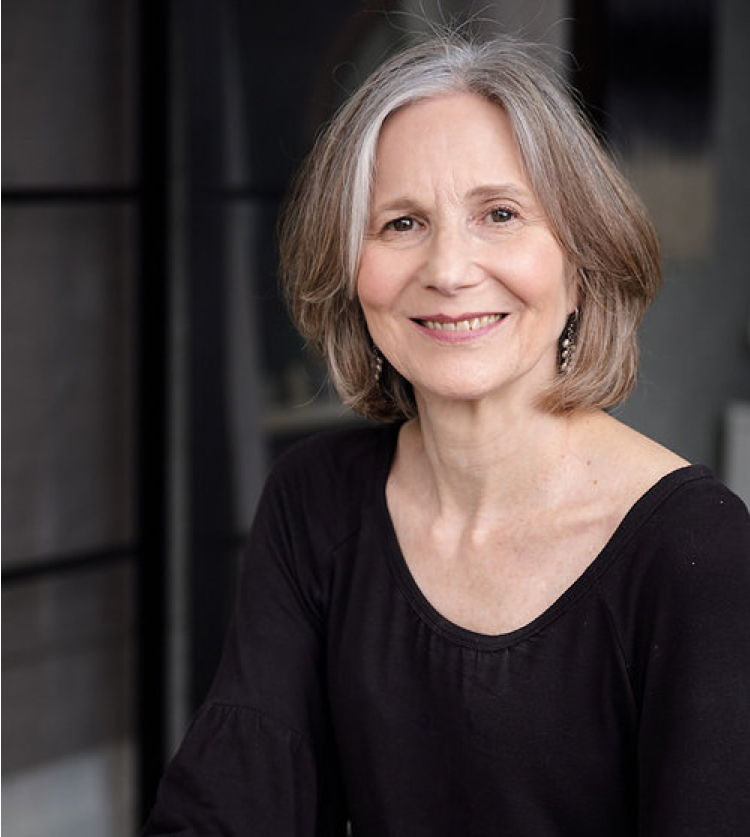
Ellen Winner is Professor Emerita of Psychology at Boston College and Senior Research Associate at Project Zero. She has authored five books–Invented Worlds: The Psychology of the Arts (1982), The Point of Words: Children’s Understanding of Metaphor and Irony (1988), Gifted Children: Myths and Realities (1996), How Art Works: A Psychological Exploration (2019), and An Uneasy Guest in the Schoolhouse: Art Education from Colonial Times to a Promising Future (2022), and has also co-authored five books: Studio Thinking: The Real Benefits of Visual Arts Education (2007), Studio Thinking 2 (2013), Studio Thinking 3 (2022), Studio Thinking from the Start: The K-8 Art Educator’s Handbook (2018), and The Child as Visual Artist (2022). She was the editor of the Arts PROPEL handbooks and PI of the Reviewing Education and the Arts Project (REAP). She is currently investigating the impact of Project Zero’s many educational frameworks and tools developed since the founding pf Project Zero in 1967.
She has served as President of APA’s Division 10, Psychology and the Arts in 1995-1996, and received the Rudolf Arnheim Award for Outstanding Research by a Senior Scholar in Psychology and the Arts from Division 10 in 2000. She is a fellow of APA Division 10 and of the International Association of Empirical Aesthetics.

